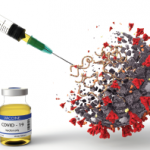In response to the recent removal of members from the Centers for Disease Control & Prevention (CDC) Advisory Committee on Immunization Practices (ACIP), the ACR and 20 partner organizations submitted a response letter to Department of Health & Human Services Secretary Robert F. Kennedy, Jr., urging the reinstatement of the terminated experts and reaffirming its commitment to science-based immunization policy.
Why This Matters for Rheumatology
For more than 50 years, the ACIP has provided independent, evidence-based recommendations that guide vaccine use across the U.S. These guidelines are essential for public health and are especially important for our patients with autoimmune and chronic inflammatory diseases, many of whom are immunocompromised due to their conditions or treatment regimens.
Vaccines remain one of the most effective tools for protecting at-risk patients from serious, potentially life-threatening infections. ACR members rely on the ACIP’s expert-driven guidance to make safe, timely vaccination decisions for rheumatology patients. Disrupting this process—particularly by removing respected experts in immunology, infectious disease and clinical practice—undermines the scientific rigor and transparency that have long defined the ACIP’s work.
This decision comes at a critical time. The U.S. is already seeing the resurgence of vaccine-preventable diseases, including measles outbreaks in multiple states. Patients with rheumatic diseases face greater risks from these infections. Any breakdown in the immunization infrastructure could worsen vaccine hesitancy, disrupt clinical guidance and ultimately endanger the most vulnerable patients.
Beyond the clinical consequences, the removal of ACIP experts may also affect insurance coverage and access to vaccines. Most health plans base vaccine coverage on CDC recommendations, which are informed by the ACIP’s schedules. Without credible, science-backed guidance, coverage decisions may change, leaving patients—especially those with chronic illnesses, such as lupus or rheumatoid arthritis—facing reduced access to critical immunizations.
The ACR’s Position
In its letter to Secretary Kennedy, the ACR made the following key requests:
- Immediately reinstate the terminated ACIP members to restore the panel’s expertise and continuity;
- Maintain a transparent, evidence-based process for appointing future ACIP members; and
- Preserve the independence and scientific integrity of the ACIP to ensure that vaccine guidance remains accurate, timely and free from political influence.
The ACR remains committed to protecting rheumatology patients and preserving trust in public health institutions. The ACR will continue to advocate for policies that ensure safe, equitable and science-based vaccine access for all Americans, especially those with autoimmune and rheumatic diseases.



